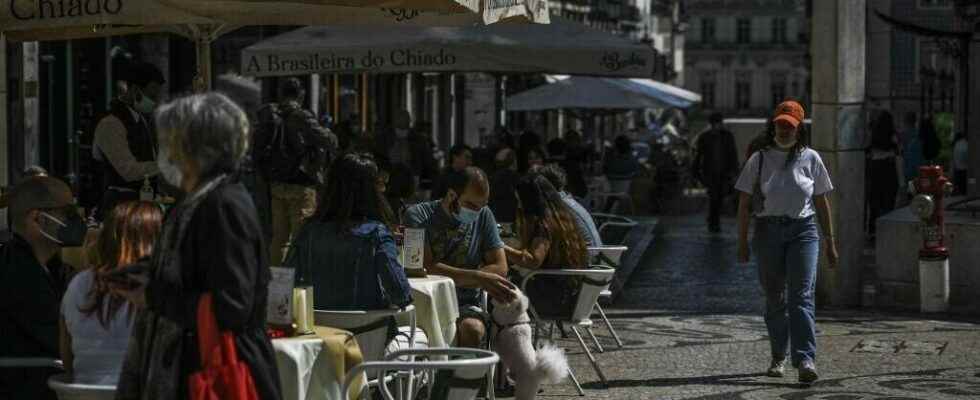A new law on immigration facilitates the granting of visas to allow foreign labor to run certain sectors essential for the country, such as tourism.
From our correspondent in Lisbon,
Nelson never loses his broad smile. ” I arrived a year ago. And with the installation of the terraces of bars and restaurants, there is work. “. Busy responding to requests from customers seated at his terrace in the center of Lisbon, the young Brazilian has just enough time to explain that he arrived in Portugal before the mobility agreement signed by his country last March, and not benefit from it. This agreement between Portugal and the CPLP countries (Angola, Brazil, Cape Verde, Guinea-Bissau, Mozambique, Portugal and Sao Tome and Principe), the Portuguese-speaking countries , had above all the value of intention.
But the new immigration law adopted at the end of July 2022 by the National Assembly provides a framework for the process intended to promote mobility. It establishes the allocation of short visas, of 120 days, which can be extended by 60 days and for which the bureaucratic procedures will be relaxed. Until now, a foreigner from a third country could only enter the territory under the shelter of a tourist visa, forcing the applicant to take very long and tedious steps with the border police to obtain the residence certificate. “ Portugal is a country of immigration. We welcome a lot of immigrants. But we want to welcome immigrants as we want our emigrants to be in their host country. said Deputy Minister Ana Catarina Mendes.
A welcome workforce
Portugal needs labor in key sectors. Tourism, construction, the textile and footwear industry and in advanced technology. ” We need 45,000 workers in the tourism sector and at all levels: hotels, restaurants, entertainment and associated services such as maintenance and hygiene. We applaud the legislative initiative says Joao Fernandes, director of the Algarve Tourist Region (RTA).
This region of southern Portugal sees its population increase from 500,000 people to five million in the summer months and the high season requires a seasonal workforce. ” Following the mobility agreements, we have established a partnership with the International Organization for Migration (IOM) for Cape Verde. Under the aegis of this UN body, we visited the country in order to set up the collaboration. It will be done at the level of the Employment Institutes. On the Portuguese side, rigorous management of job offers and on the Cape Verdean side a thorough selection of candidates. In principle, it is the consulates that will manage the visas », explains João Fernandes. The manager is also pleased that the system can reach 20% of young people “neither nor” in Cape Verde: neither workers nor students.
Benefits and Concerns
One of the particularities of the system is that it will be able to play with the cycles of inverted tourist seasonality, between the countries sending and receiving labour. A particularly interesting situation for large hotel groups established in different countries.
Portugal, which has extended its mobility agreements with countries such as India and Morocco, is preparing a trip to this country for the end of the year. The delegation will be made up of members of the government, institutions and businesses. Lisbon wants to guarantee that the procedures will not be complicated by the SEF, the immigration service, which is perpetually overwhelmed. The regulations implementing the text of the law are eagerly awaited, but the beneficial effects for employment will not be felt before 2023.
The Covid-19 epidemic, the search for better working conditions and wages but also the aging of the population are forcing Portugal to take important measures. Officials affirm that there will be no excesses of underemployment and human exploitation. Finally, the establishment of duly established immigration corridors between “sister” institutions is presented as the best guarantee of avoiding illegal immigration. ” The risk exists. We try to minimize it », affirms João Fernandes, the leader of tourism of Algarve.
